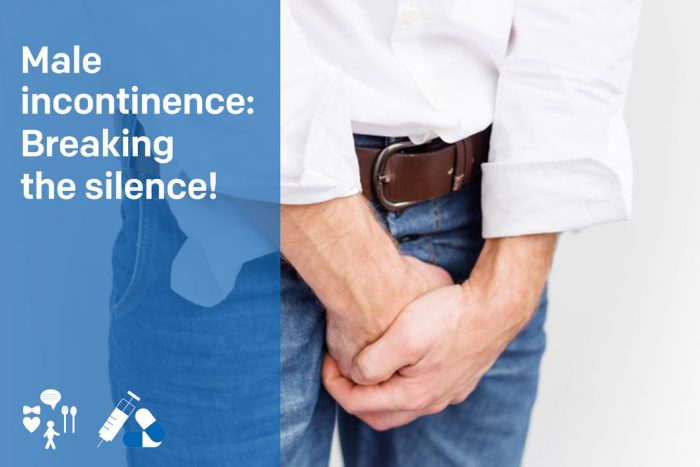Urine leakages are generally perceived as a women’s issue. Yet, men are also facing this problem, even among the young ones.
Notably, those who are treated against a prostate cancer may encounter some incontinence issues. Fortunately, there are some help and treatments available to restore the control of an incontinent bladder.
What is Urinary Incontinence?
Someone who experiences involuntary losses of urine suffers from incontinence. It is a symptom linked to a physical condition, such as an illness, a muscular weakness or the side effects of a medication.
Since incontinence can occur in various ways, there are different types of incontinence. For example, whether it comes from lifting an object or simply from sneezing, when a physical exertion causes an urinary leakage, it is considered to be a stress incontinence.
For the urge incontinence, the bladder contracts itself involuntarily, provoking the urinary loss. The need to urinate is such an urge that it is not always possible to reach the toilet in time.
In a case of mixed incontinence, the two first types are combined. There is also the overflow incontinence, where the bladder is always full, which causes urinary leakages in small amounts.
Among Men with Prostate Cancer
Given that every person perceives the seriousness of their situation differently, it is difficult to assess the proportion of men suffering from urinary incontinence after a treatment for prostate cancer. Furthermore, this issue can bring many negative feelings, such as shame, guilt, frustration or anger. Thus it is not always easy to speak about it, even with a health care professional.
Consequently, incontinence also has an impact on the lifestyle of men facing a prostate cancer. In fact, the fear of experiencing an involuntary urinary leakage and the subsequent lack of self-esteem may bring changes in habits and daily activities of an individual, both socially and personally. As the outings and intimate relationships diminish more and more for men with prostate cancer, the isolation only becomes greater.
Finally, buying protective products for urinary leakages can get expensive and frustrate more men with prostate cancer. However, all this can be avoided, as it is possible to treat effectively the urinary incontinence rather than suffering from it day after day.
We will focus the next series of articles on how to deal with incontinence related to prostate cancer treatment.
Do you suffer from incontinence? Join our conference in Quebec City or via live webcast on procure.ca
Click here to register. It’s free!
You have questions or concerns? Speak to one of our health professionals.
Contact our toll-free 24/7 line at 1 855 899-2873




